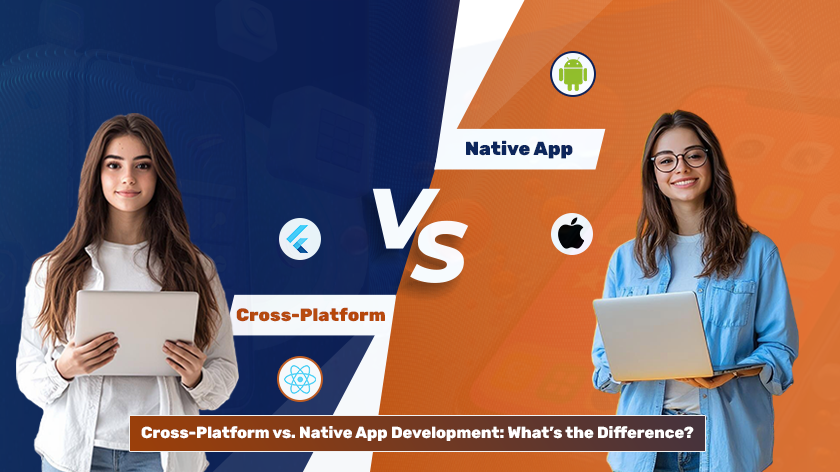Businesses that build mobile apps often have to make the difficult decision of whether to create native or cross-platform apps. Every strategy has unique advantages, technical factors, and performance traits that might affect user experience, development time, and expense. To assist you in choosing the greatest choice for your app development needs, let’s explore the differences.
1. What is Native App Development?
Native app development involves building mobile applications specifically optimized for a particular operating system (OS) using languages and tools designed for that platform. For iOS applications, developers typically use Swift or Objective-C, while Android applications are developed with Kotlin or Java. This approach leverages the unique features of each OS, enabling apps to run efficiently, deliver a seamless user experience, and fully integrate with device functionalities for optimal performance.
Benefits of Native App Development:
-
Optimal Performance: Native apps have access to all device features and can utilize them fully, offering smoother, faster performance.
-
Enhanced User Experience: Since the UI and UX are tailored to each platform, native apps feel more intuitive and user-friendly.
-
Reliability and Security: Native apps benefit from the security features of their respective operating systems, making them more robust.
Drawbacks of Native App Development:
-
Higher costs: Developing and maintaining separate apps for iOS and Android can be costly.
-
Longer Development Time: Separate codebases require more development time and resources, which can delay the launch.
2. What is cross-platform app Development?
Cross-platform app development enables developers to build one application that functions seamlessly across multiple platforms, such as iOS, Android, and sometimes even the web, all from a shared codebase. Popular frameworks like Flutter, React Native, and Xamarin make it possible to write code once and deploy it across various operating systems, saving time and reducing costs while reaching a broader audience.
Benefits of Cross-Platform App Development:
-
Cost-effective: Since cross-platform apps share a single codebase, they can be more affordable to develop and maintain.
-
Faster Development: Development improves with a uniform codebase, enabling faster platform releases.
-
Wider Reach: Businesses can reach people on both iOS and Android with a single development effort thanks to cross-platform apps.
Drawbacks of Cross-Platform App Development:
-
Limited Performance: Cross-platform apps may lack the speed and responsiveness of native apps, especially for high-performance tasks.
-
Reduced Access to Native Features: While cross-platform tools are improving, they may still have limited access to certain device-specific features.
-
User Experience Compromises: A “one-size-fits-all” UI approach may not feel as intuitive to users as native apps designed specifically for each platform.
3. Key Differences Between Native and Cross-Platform Development
Using platform-specific languages (Kotlin for Android, Swift for iOS), native programming produces apps only for a single platform (such as iOS or Android), guaranteeing peak performance and complete access to device capabilities. On the other hand, cross-platform development creates a single application that functions on several platforms by using frameworks like Flutter or React Native. Although this method saves money and time, performance and native feature access may be compromised.
4. Which Option is Right for Your Business?
Deciding between native and cross-platform development largely depends on your app’s complexity, budget, and desired user experience.
Choose Native if
-
Your app requires high performance and responsiveness.
-
You want a highly polished, platform-specific user experience.
-
You need deep integration with device hardware or platform features.
Choose Cross-Platform if
-
You’re looking to launch quickly on iOS and Android with a limited budget.
-
You prioritize reaching a wide audience over platform-specific optimizations.
-
Your app doesn’t require complex, device-specific features.
5. Conclusion: Making the Right Choice
Both native and cross-platform development have their strengths and drawbacks. Native development is ideal for apps that demand top-notch performance and a unique user experience tailored to each platform. On the other hand, cross-platform development is a cost-effective and efficient solution for reaching users across platforms with a single codebase. When choosing between the two, consider your project requirements, budget, and long-term goals carefully.
Contact XcelTec today to discuss your app development goals and discover how we can bring your ideas to life!
For more information: https://www.xceltec.com/
 :
https://in.pinterest.com/xceltec0192/
:
https://in.pinterest.com/xceltec0192/












